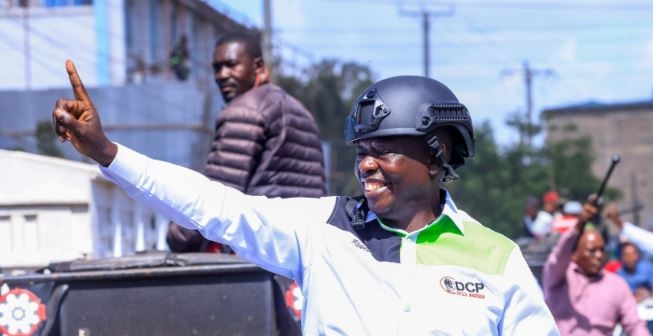Those of us who are old enough to have fully experienced the Moi era – the 24-year authoritarian rule of President Daniel Moi – often reminisce about those days in idle moments.
This is partly because there was far more political drama back then.
When we speak of authoritarianism, we basically mean that all power is concentrated in the hands of a single individual – or at most, an exceedingly small group of political or military insiders.
And so, we had this spectacle as a routine fixture on the evening news:
His Excellency would be on a “working tour” of some corner of the country; and a public rally would be held at which he was to address the adoring masses before him.
And “to introduce His Excellency to his people”, one of the top leaders of that region would be summoned by the Master of Ceremonies to say a few words.
Thereafter would follow a display of obeisance; a fawning speech involving flattery of a kind we no longer see in this country.
Such extravagant words of praise were but a preliminary to a request being placed before the President. And using such an opportunity in this manner, was the only way to get that highly centralised political system to yield any substantial benefit for the people of that region.
Most of the requests made in the course of such speeches proclaiming the glories of His Excellency – the most noble and most wise of leaders – were for infrastructure projects. A road to be built or repaired. Maybe a bridge over a local river that often turned treacherous in the rainy season.
This tradition in the end reached an absurd point when a bold request that was placed routinely before the President, was for a new university.
But for now, I want to confine myself to infrastructure and the magical thinking that surrounds infrastructure projects in this country.
Consider for example the Nairobi Expressway currently under construction to the great frustration and inconvenience of the city’s commuters.
The first thing to be said about this piece of infrastructure is that it really should have been built years ago. Frequent travellers within the Eastern Africa region will know that for many years, Nairobi shared with Kampala the dubious distinction of being cities where you had to leave for the airport a good four hours before your international flight. This was because the journey to the airport alone was likely to take two hours, if you ran into a serious traffic jam.
The Kampala-Entebbe Expressway, which was completed three years ago, cut the time it took to get from the capital city of Kampala to the Entebbe International Airport to 45 minutes.
Only now are we playing catch-up to Uganda, in this matter of having an efficient direct route from the capital city to the busiest international airport.
But what are the benefits of such a project to ordinary Kenyans?
Well, those hoping for some immediate and tangible benefit will be disappointed.
While it has definitely created some jobs during this construction phase, once complete, the Freeway will be largely a convenience for the upper middle class, who can afford to pay to use it. And it will also be a facilitator for more conference tourism.
There are poor Kenyans in low-rent neighbourhoods who will probably go their entire lives without once riding in a car speeding along that Expressway.
But that is only in the short term. In the long term, once the loans taken to build it have been repaid through toll charges, the Expressway will be a regular source of revenues for the government, as user fees will still be levied.
This money can then be used to provide services for ordinary people in the form of more and better public facilities for health and education, and also repair of public roads.
In other words, a piece of infrastructure like the Nairobi Expressway, properly utilised, can be a highly efficient and targeted taxation device, which will extract money from the rich and transfer this money to addressing the needs of the poor in the form of improved public services.
More on infrastructure next week.














